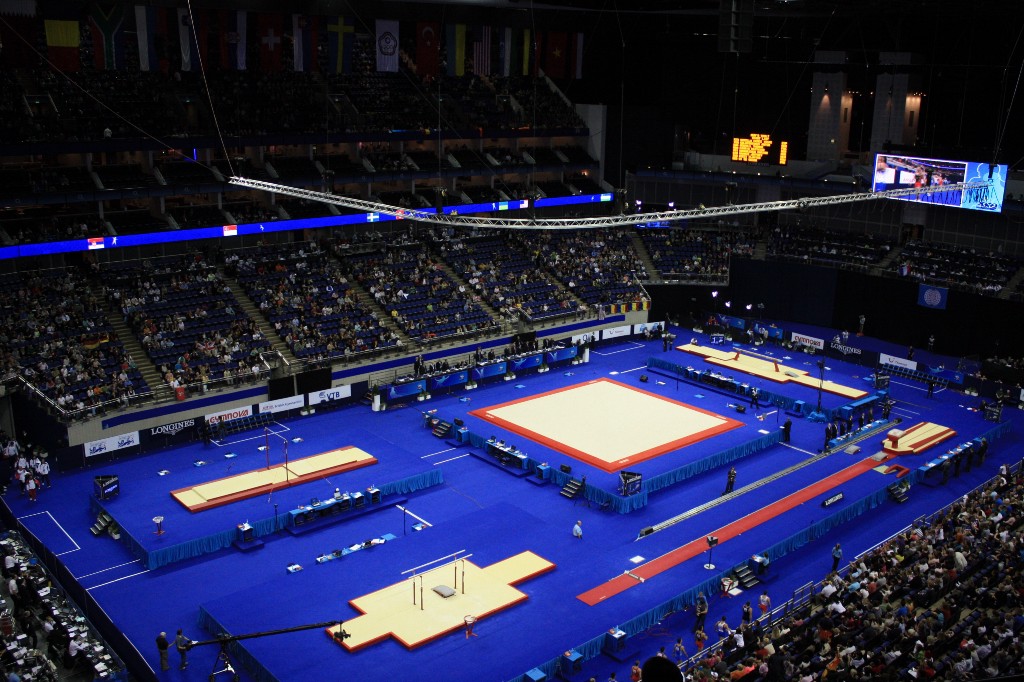Explaining The Olympics To a Five-Year-Old
Simone Biles and the nation-state.

I only meant to buy myself fifteen minutes from the chaos that attends family life each day between 5 and 6 p.m. One of my kids likes doing cartwheels, so it stood to reason he might be diverted by the YouTube footage of Simone Biles that had made its rounds on social media earlier that day.
If I had had an inkling of the full-twisting double layout of contortions this was going to lead us to, I might have just settled for fifteen more minutes of everyone screaming at one another while the pasta water boiled. It’s not that my son fell instantly and wonderfully in love with Simone Biles—studying her beam and floor routines and then reenacting them with heroic unselfconsciousness on the air mattress we have constantly inflated in our bedroom for the children to jump on. It’s more that introducing and explaining Simone Biles to a five-year-old necessitates explaining the Olympics to a five-year-old and the Olympics make both a ton of sense and absolutely no sense whatsoever. Like, on the big scales: ontologically, epistemologically, politically. I was shocked by how quickly my kid went from gasping with pleasure and delight watching Simone Biles’s tumbling passes to wanting to know not just what but why. Why is this?
You cannot explain the Olympics without introducing the concept of the nation, and I feel like even if you haven’t read your Benedict Anderson, just trying to put into simple-enough language what a nation is, and why they exist, is as good a way as any to pull the whole goddamned rug of modern life out from underneath yourself with one quick tug. How awful: people have organized themselves into such bizarre and absurd patterns! The flip side of this morass is explaining all the different sports and games that are played in the Olympics: curling, ski jumping, shotput, balance beam, bobsled, synchronized diving. How beautiful: people organize themselves into such bizarre and absurd patterns!

And so the last three weeks — one of which found us vacationing near Lake Placid, with its looming Olympic ski jump apparatus demanding explanation each time we drove past — have been pedagogically challenging, as I pick my way through questions that lead me to both sublimity and despair. The beautiful Arnoldian uselessness of a person spending years to master the art of flipping her body through the air and landing securely on a piece of wood a few inches across suspended five feet off the ground, is in every instance set against the violence of the nation-state and spectacle of capitalism.
These are questions of form and genre, and what I keep getting hung up on is how to explain (in five-year-old language) how we know which forms are beautifully absurd and which are hurtfully so. Which arbitrary rules are fun and which murderous. “Tell me more about the silly sports in the Olympics,” he’d request from the back seat, and my husband and I would launch into descriptions of people running really fast, hopping in a sled, and then ducking down; or shouldering a huge fucking pole, running really fast, and then jamming it into the ground and hoisting your body upward over another pole. There is literally no point to any of it — other than the pleasures of speed, exactitude, exertion; this pointlessness is, ironically, exactly the point. The best part of these conversations with him, I discovered, is that the usually recursive “why” of a five-year-old seemed for once satisfied with the “jam a huge pole in the ground” explanation. Of course, he seemed to think. You try to be really good at jamming a long pole into the ground. I mean, why not?
Of course, one reason we might not: because we do all of this wonderful formal experimentation under the banner of the least interesting and most violent aesthetic form ever: the nation. It wasn’t entirely surprising when one of our many child-oriented recent conversations about the Olympics somehow slid into a brief introduction of the concept of war. “Is there a war right now?” he asked, and there, I confess, I finally punted; I really didn’t know where to begin.
I don’t, and probably never will, have the sort of ideological clarity to do what I suspect I probably should: disavow the pleasure of Simone Biles’s excellence because of its proximity to this question about war, or its relationship to a long history of bizarrely disciplined female bodies, or even in the more immediate context, to the gross mismanagement of resources that is this summer’s Olympics in Rio.
And anyway, disavowal is not really my thing. Why say no? Instead, I’ll keep trying to be a better and more ample reader of beauty and uselessness. Nations are violent not because they follow formal constraints, but because they insist those constraints must be intensely meaningful, something one must be willing to die for. So this week I guess I’ll be the dork watching the Olympics with my kids, but not so much for the red, white, and blue, or even the sentimental character arcs. Rather, we’ll be rooting for The Useless. I can’t wait to watch Simone Biles power her body upward in ever more baroque ways. Let’s refuse the temptation to make all that gorgeous meaninglessness meaningful.
Sarah Blackwood is editor and co-founder of Avidly and associate professor of English at Pace University. Follow her on Twitter: @drunkenbee